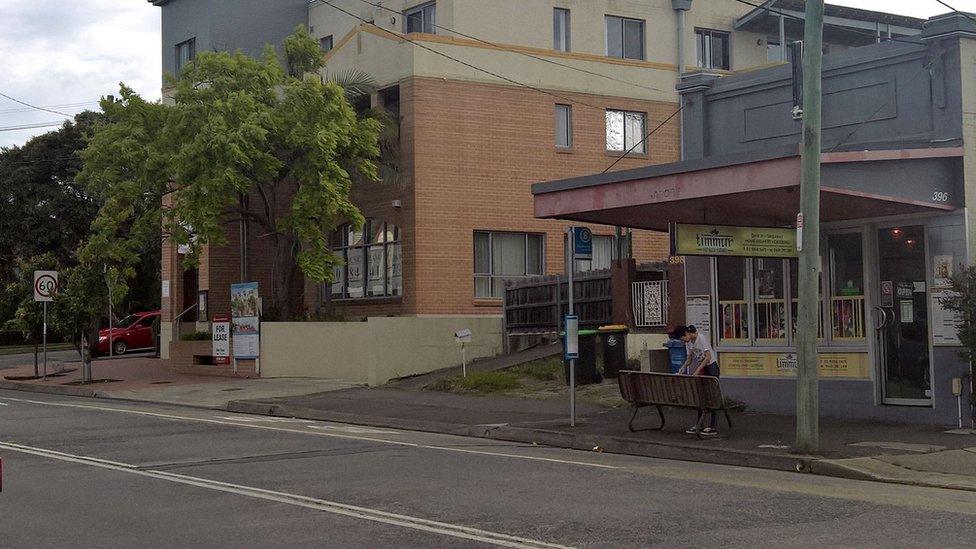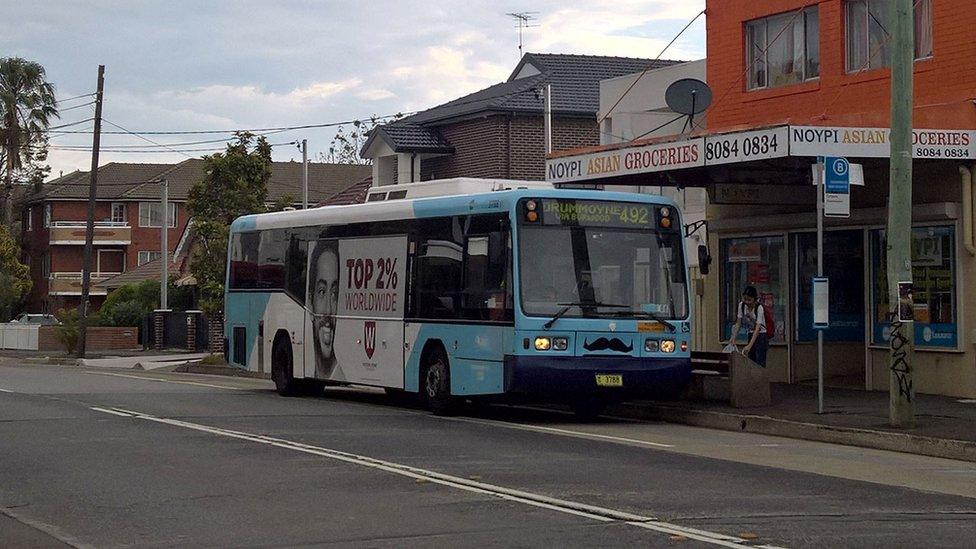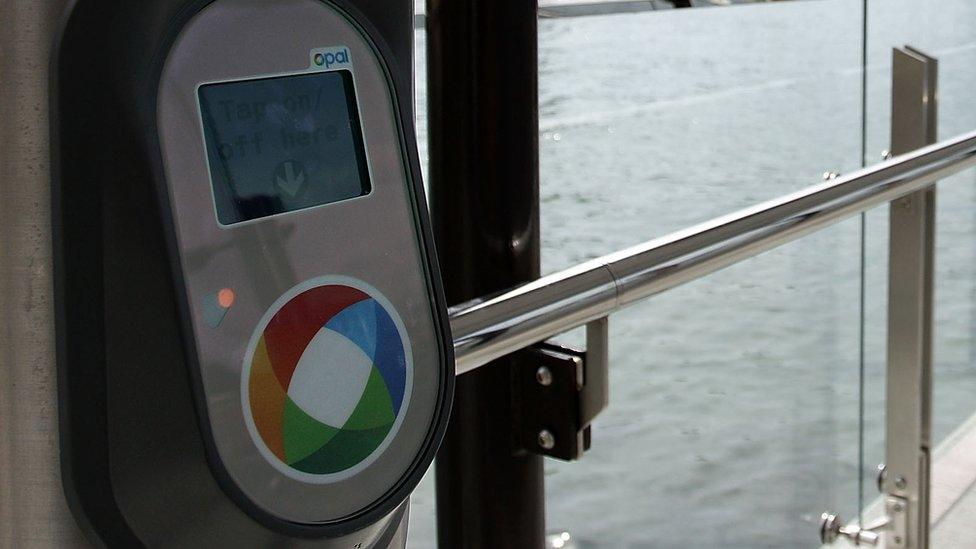The mystery of a man found dead with only a travel card
- Published

The identity of a man discovered dead in Sydney, Australia, nine months ago has stumped authorities. Was he living in the country in secret? Julian Lorkin reports from Sydney.
His body was found just as the sun was rising over Beamish Street in Campsie, a mostly working-class suburb.
The man, aged over 50 and "of Asian appearance", had died of an apparent suicide outside a unit block, authorities said. He had no wallet, phone or documents of any kind.
The only clue to his life was an electronic transport card found in his pocket.
The Sydney-wide Opal card is sometimes used by police to help identify deceased people. Opal cards are normally registered to a home or email address, and linked to a bank account.
This one, however, was unregistered. Adding to the puzzle, the card had been topped up with cash in a location that did not have security cameras.
What is known is that the man's trips always began or ended at a bus stop known as "Dan's Corner", not far from where his body was later found.

The bus stop at "Dan's Corner"
His final bus journey, on 10 April, took him only about 250m (800 feet). It ended at a stop outside an Asian grocery store.

The last stop where the man's Opal card was used
Post-mortem clues
Who was this man, and what drove him to take his own life?
Police made appeals in Chinese-language media in Sydney, but no-one came forward.
A post-mortem revealed that he was most likely suffering from multiple myeloma, a type of blood cancer known to cause excruciating pain.
The conclusion was based on the discovery of lesions in the man's leg bones. He had also been taking non-toxic levels of paracetamol.
In his final report, state Coroner Les Mabbutt ruled that the man's identity could not be ascertained.
He was suspected of being an "unlawful non-citizen" - a term used to describe migrants without legal status in Australia.

You may also be interested in:

"That may be consistent with no identification being located on the deceased and that the deceased has not been reported missing," Mr Mabbutt wrote in his report, external, adding it was impossible to say for certain.
No-one approached by the BBC in the area said they had known the man, though one bus passenger said he had heard about the case - describing it as "very sad".
'Unlawful non-citizens'
Campsie is less than 20km (12 miles) from affluent beach areas like Bondi, but it is in many ways a different world.
Average weekly income is two-thirds less than in wealthier areas of Sydney. According to official figures, only a third of Campsie's residents were born in Australia and one in three people speak Chinese at home.
The area has many boarding houses that are used by "unlawful non-citizens", say police. Typically, someone might arrive in Australia on a short-term visa, and then stay past the time limit.
Many work for years or even decades - getting paid in cash, and often sending money home anonymously - before being detected, experts say.

Opal card activity is recorded electronically on readers such as this
"The best estimate is between 50,000 and 100,000 unlawful migrants are in Australia," said Associate Prof Marie Segrave from Monash University.
About a third are working illegally, a Senate Estimates hearing was told in May.
"However, many have been put in bad situations where they haven't been paid, and they are sharing incredibly bad, unsafe accommodation with many other migrants," Associate Prof Segrave told the BBC.
"They have no avenue to remain here legally, have no ID, no driving licence, and no permanent accommodation."
Lonely path
"I just don't know how people survive," said Major Paul Moulds, head of The Salvation Army in Western Sydney.
"We try to help and offer food parcels. But it's a difficult journey for non-citizens who become ill."
Mr Moulds said charities provided basic health services, but people without legal status had difficulty getting proper, long-term care.
Most were also reluctant to explain their circumstances, he said: "They are so disconnected with the regular community. They live in a kind of shadow world, and have a mindset they just can't escape - never mind how much pain they are in."
He said he had encouraged seriously ill people to take up an Australian government loan to return to their home country, but few were willing to incur that financial debt.
Police said they were still looking for clues to the dead man's identity.
"The deceased is somebody's son, possibly somebody's sibling and perhaps somebody's father," Mr Mabbutt wrote.
"Tragically, there is a possibility he has a family in Australia or overseas who do not know what has become of him."
If you are feeling emotionally distressed and would like details of organisations in the UK which offer advice and support, go to bbc.co.uk/actionline.
Samaritans provide a safe place to talk where calls are completely confidential. From UK and Ireland call 116 123 or visit www.samaritans.org, external.
If you are in Australia, you can call Lifeline, external on 131114.